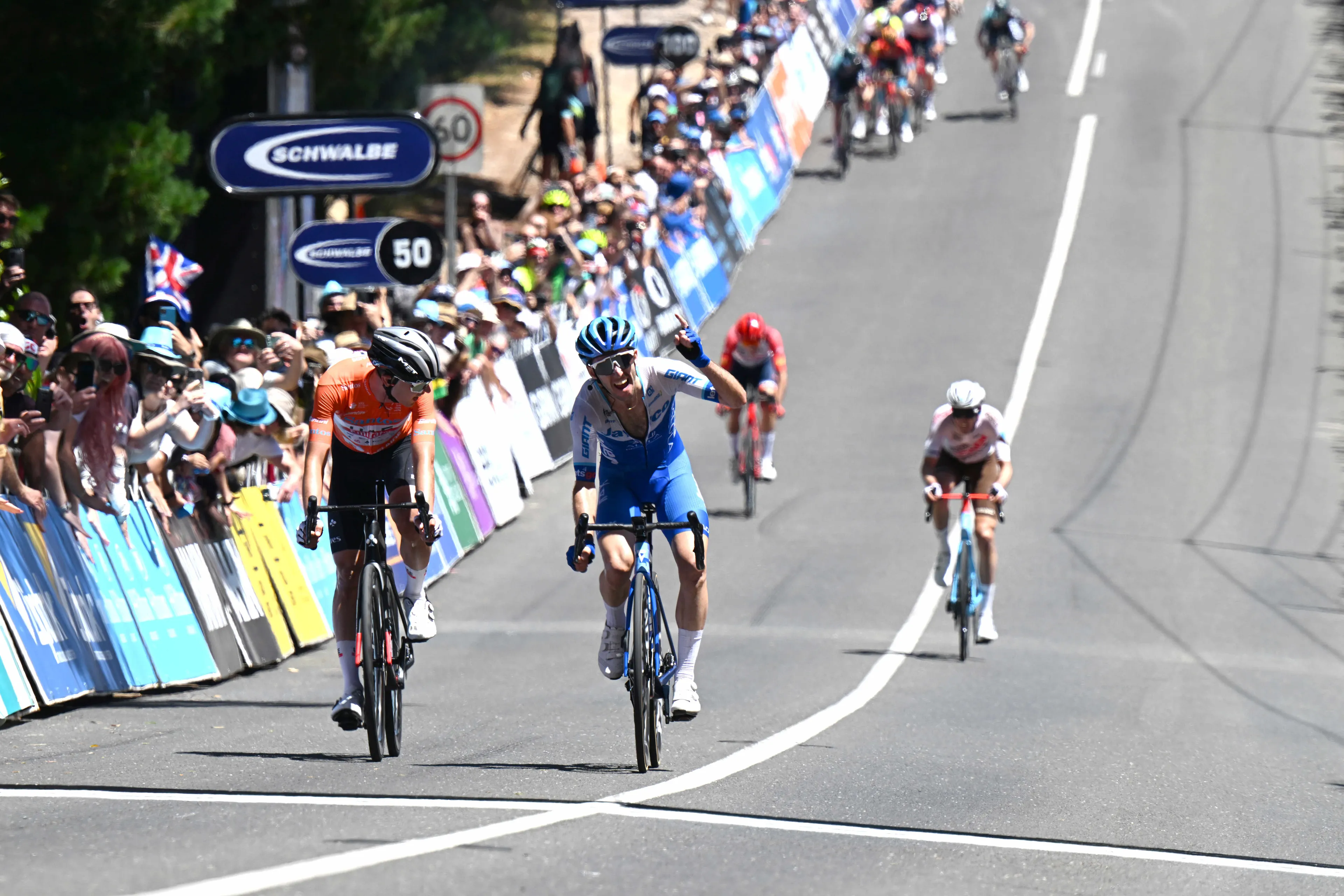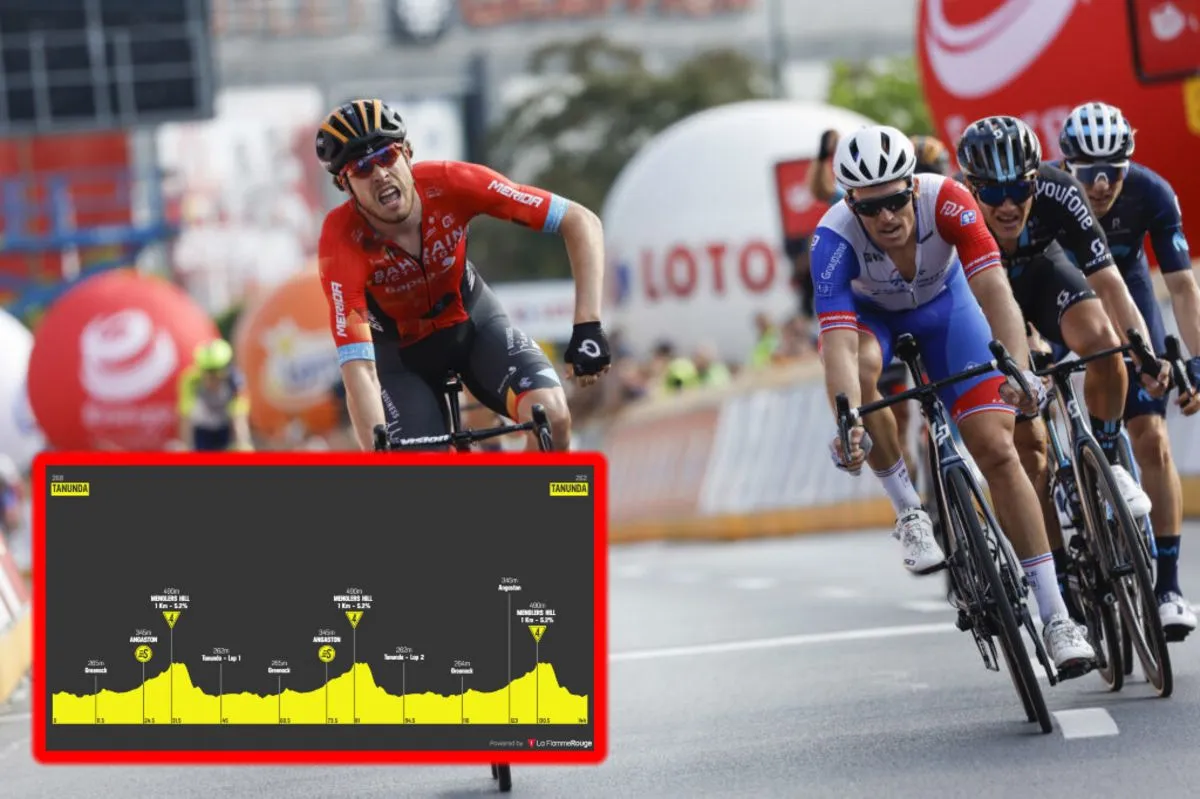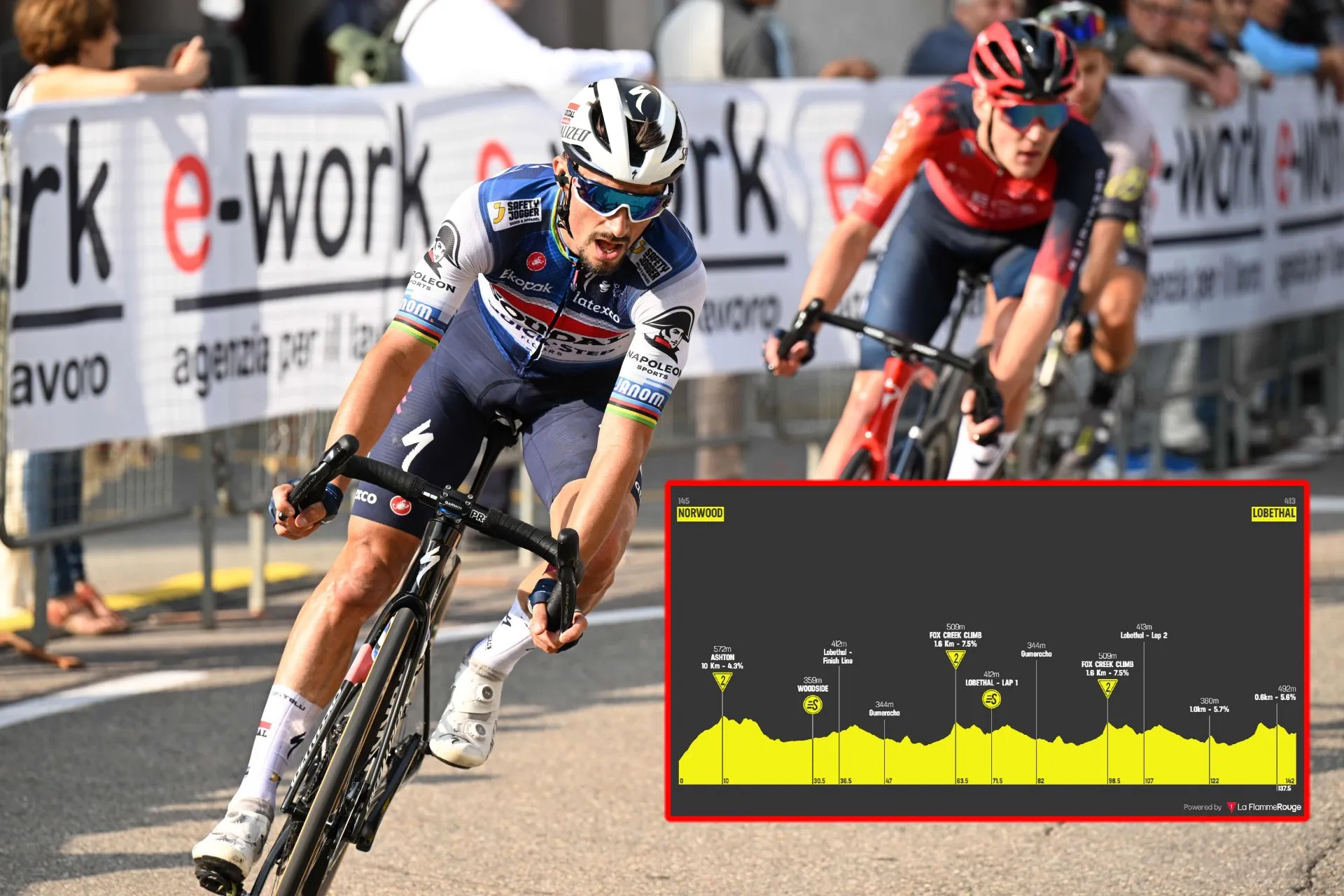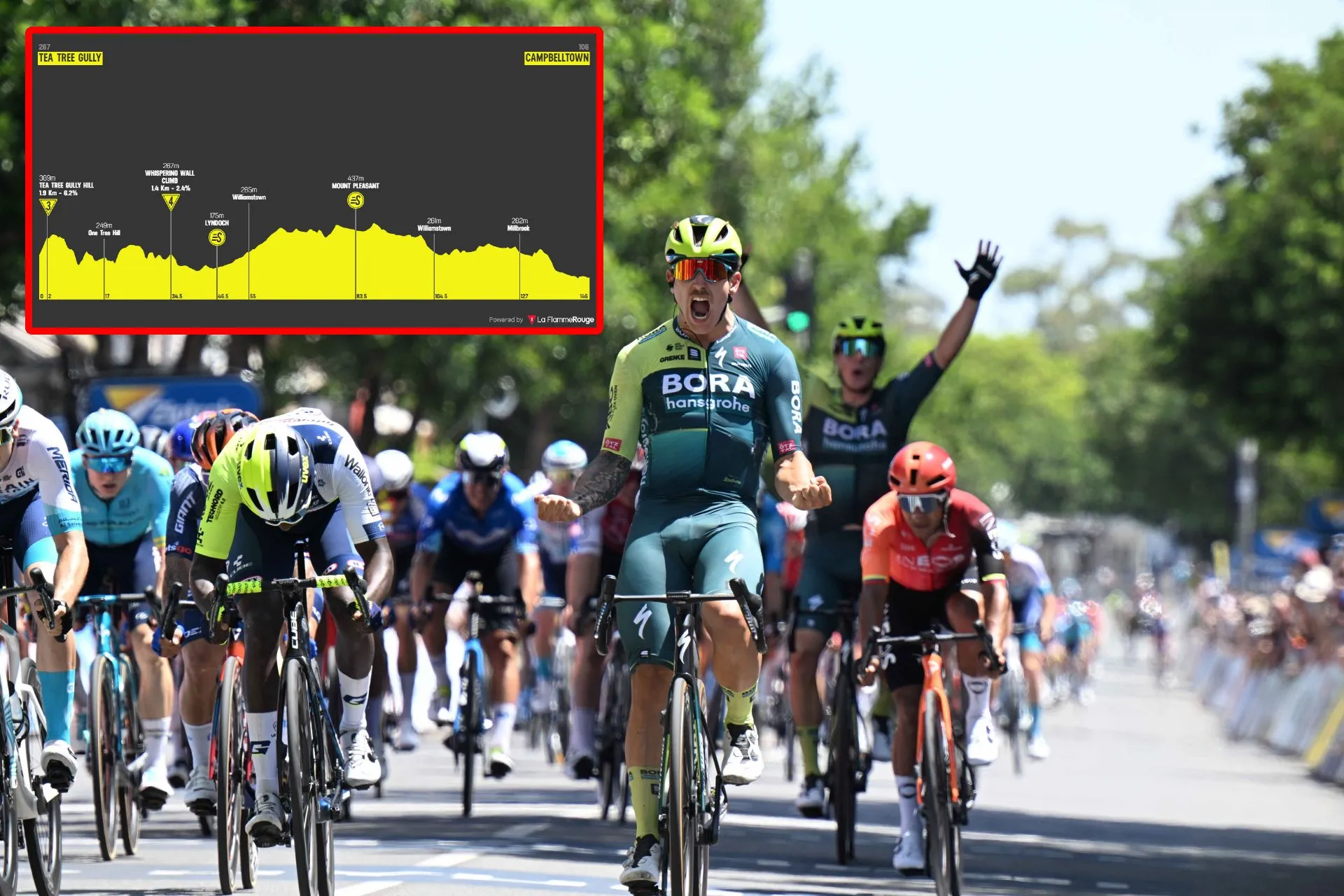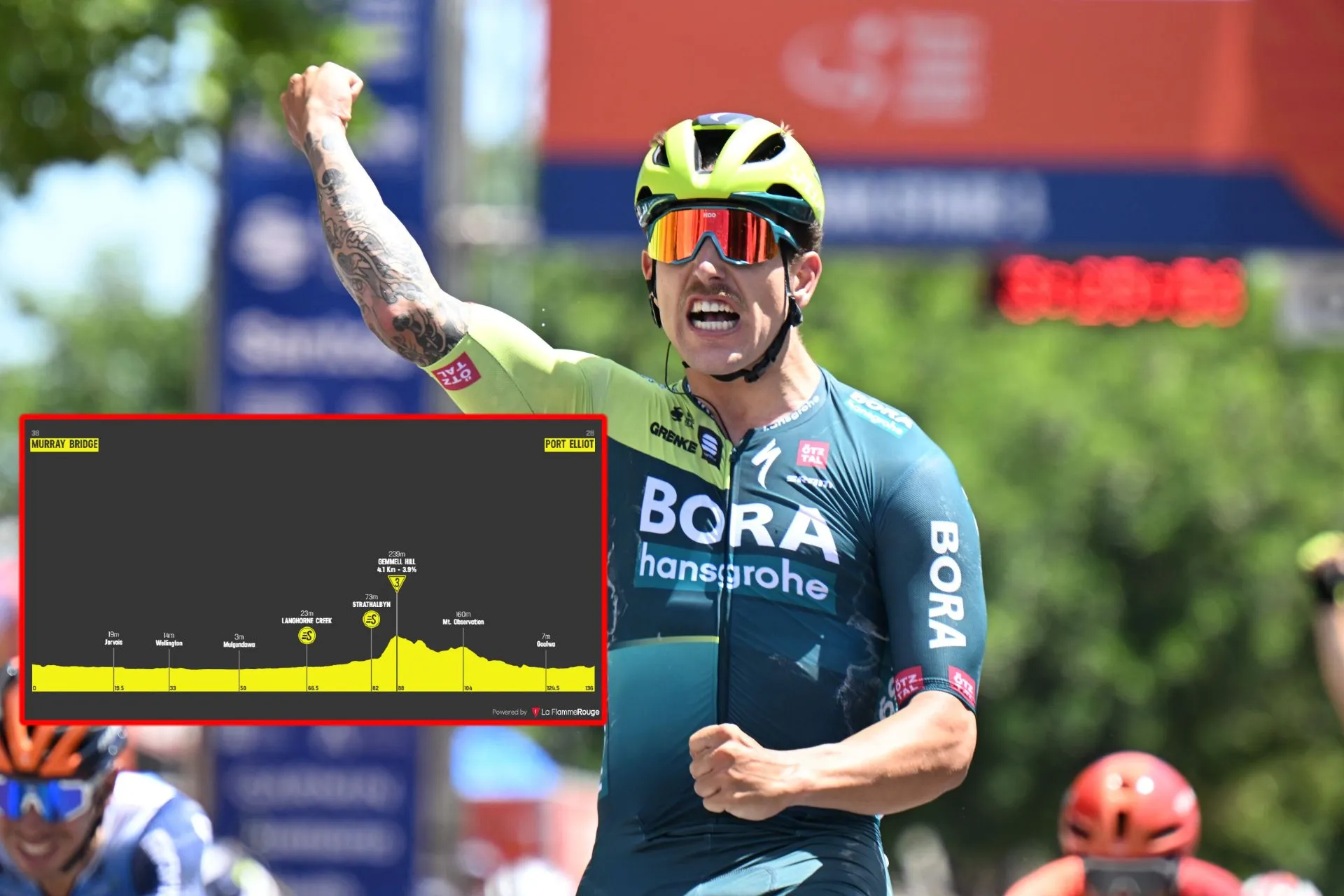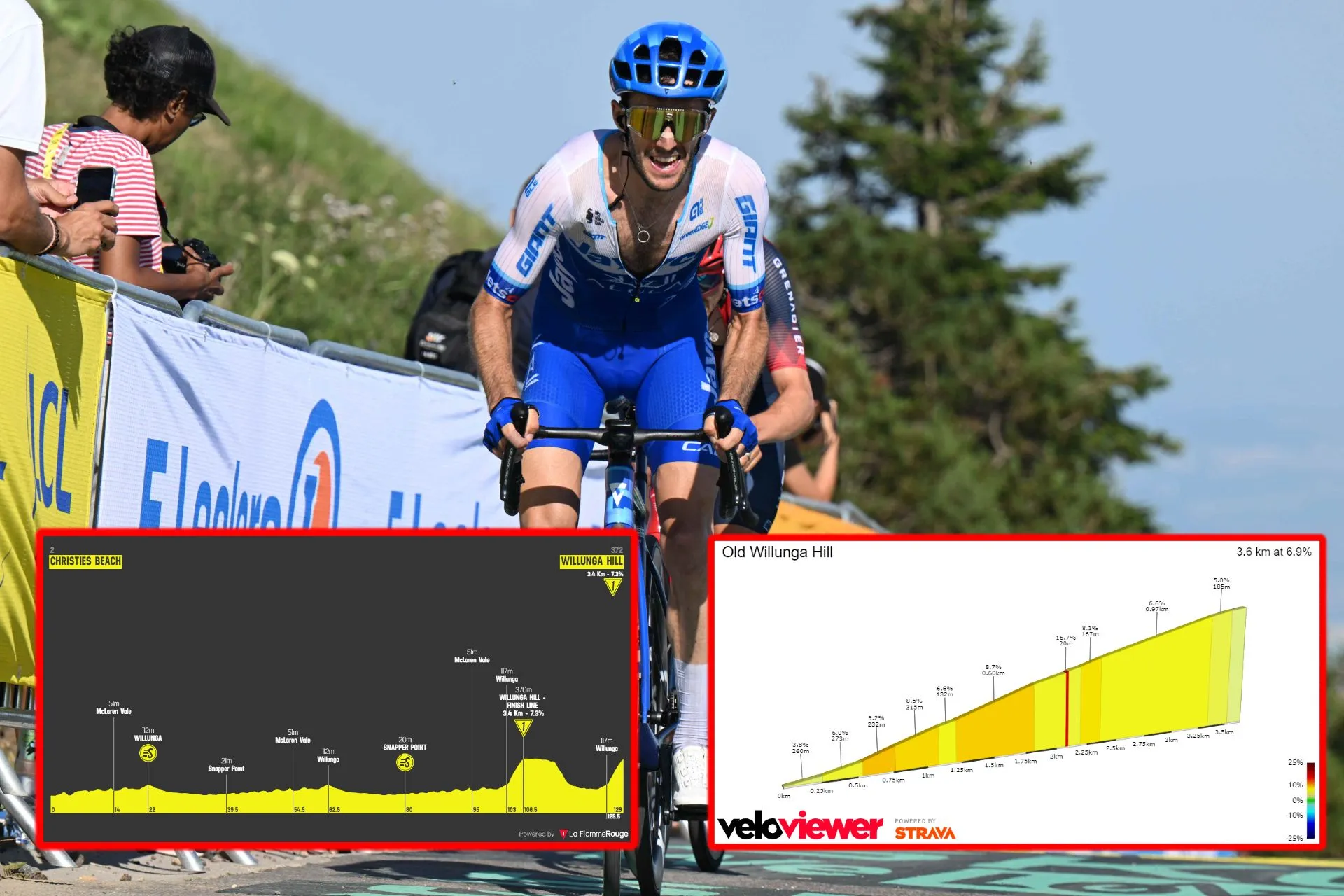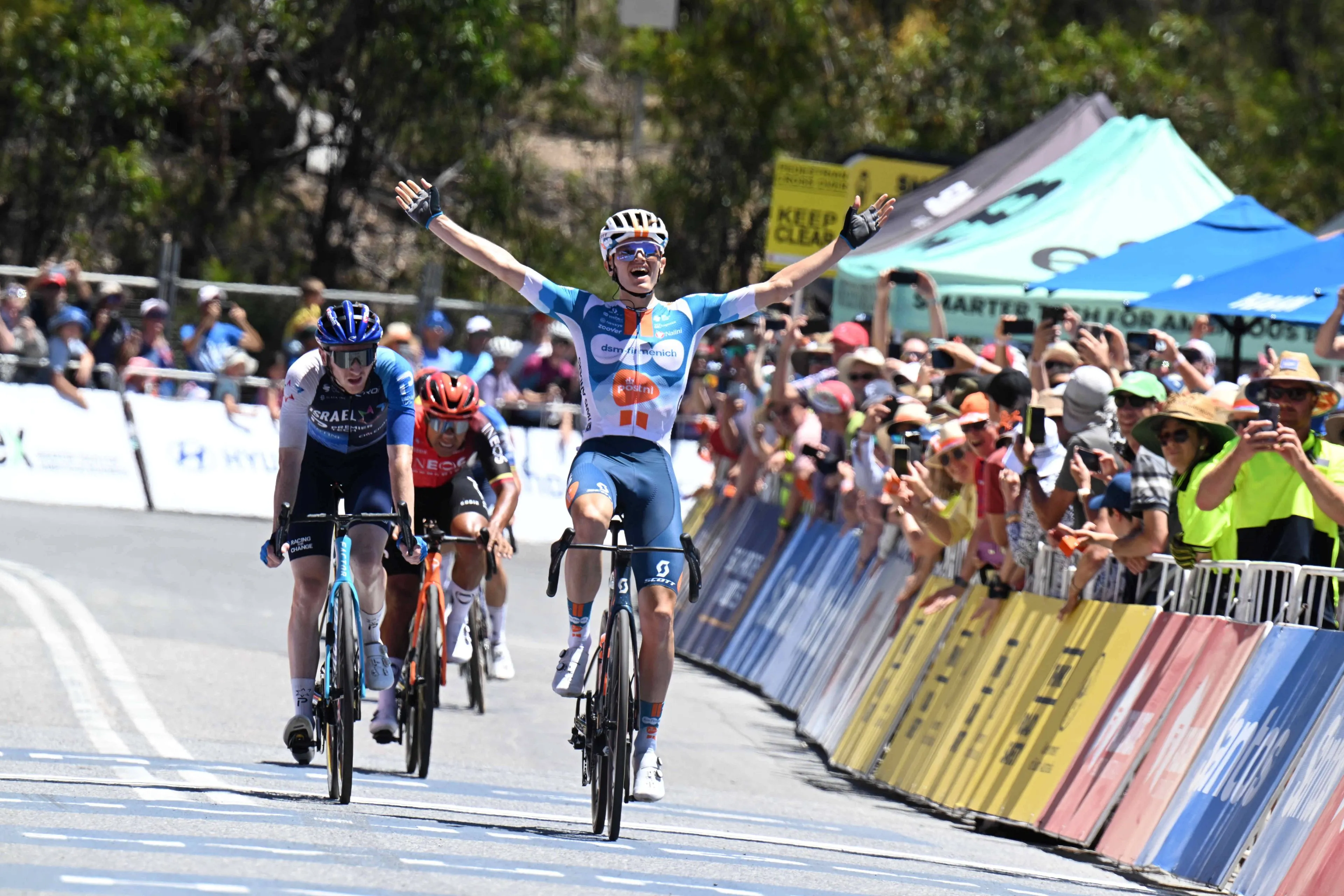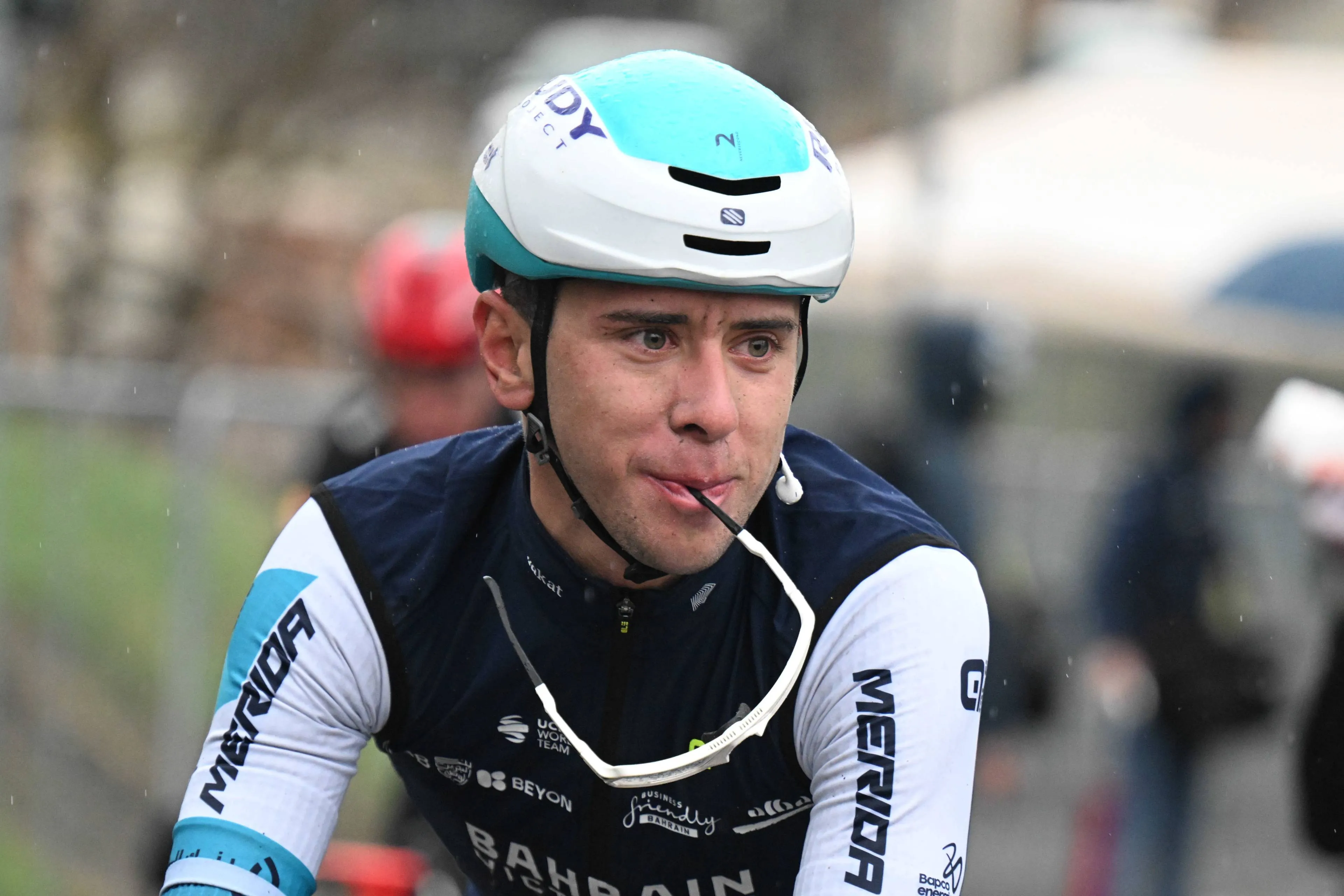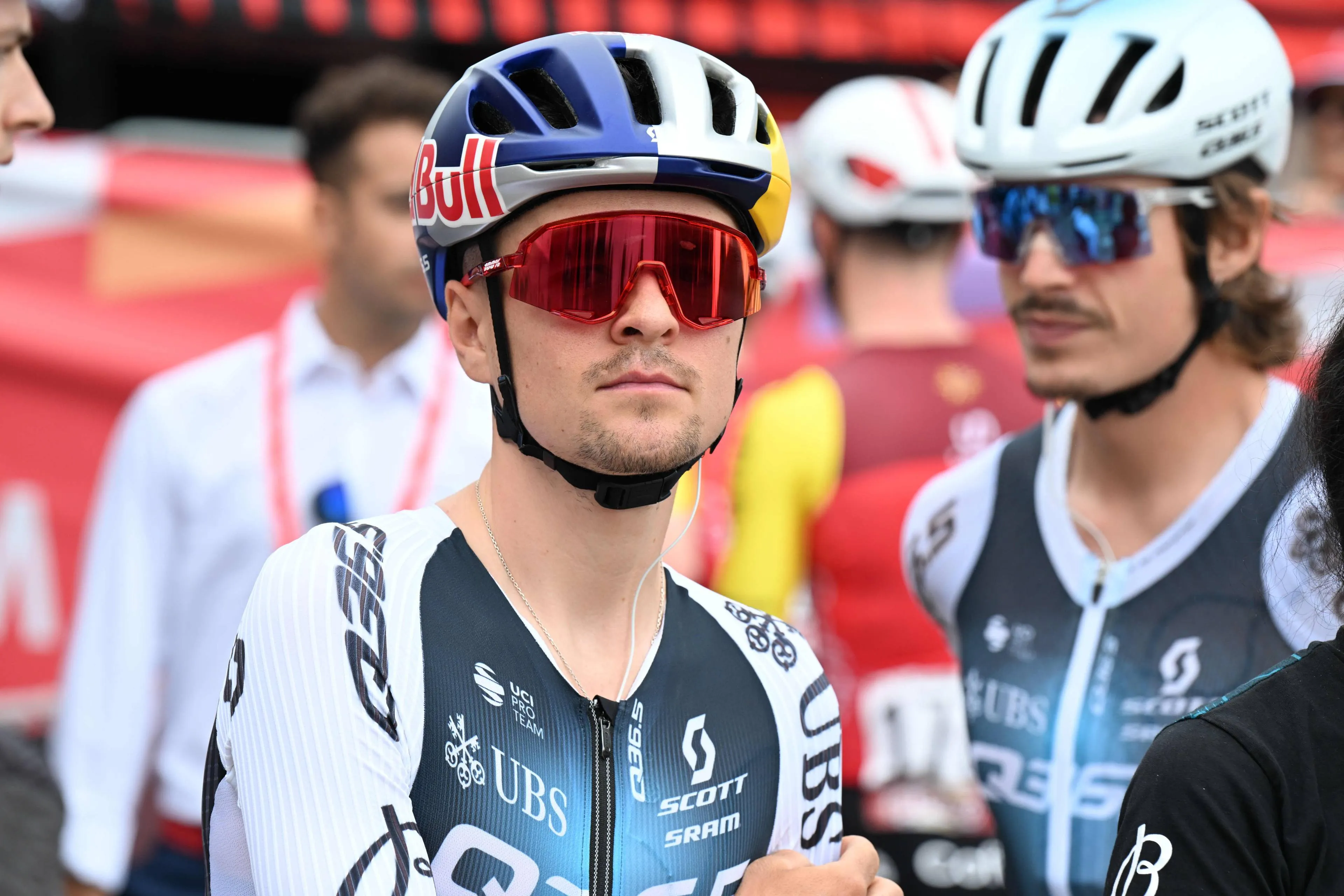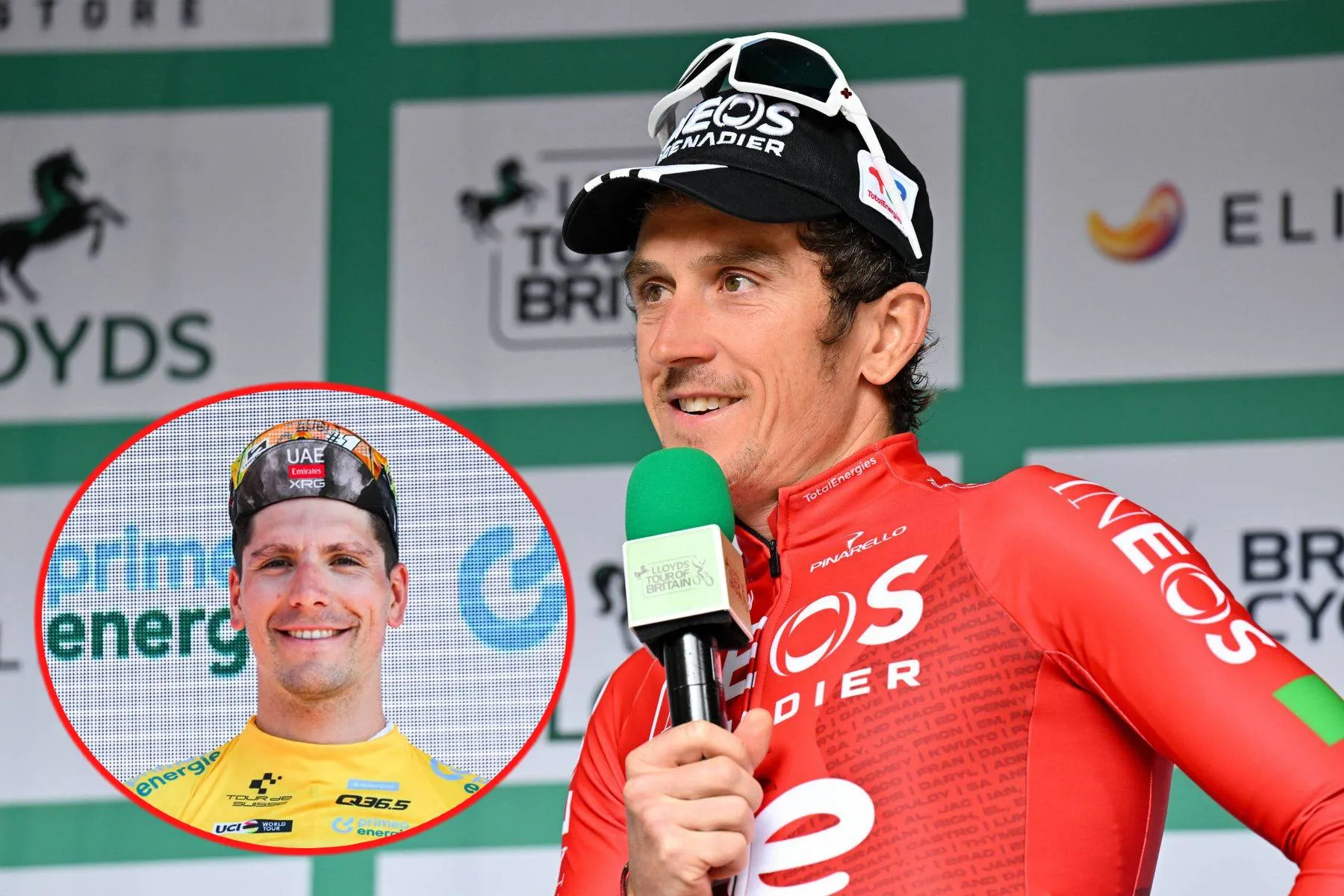Profiles & Route Tour Down Under 2024 - Old Willunga Hill and Mount Lofty to decide overall classification
CyclingMonday, 15 January 2024 at 14:02

Profiles. The Tour Down Under is the first major road race of the road season and opens up the World Tour racing. From the 16th to 21st of January the season kicks off with racing in Australia.
The first race of the season when it comes to stage-racing at the highest level features only short stages. The riders come in for the heat, UCI points and reputable victories. The route doesn't change much from it's traditional format with the Willunga Hill and Mount Lofty to decide the overall classification. Furthermore, there will be two stages which should all end in sprints - providing plenty opportunities for the fast men.
Read also
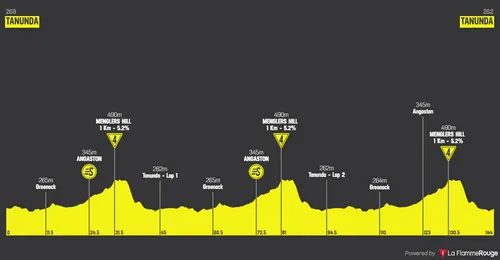
Stage 1: Tanunda - Tanunda, 144 kilometers
The race begins in Tanunda with a 144-kilometer day. This one features three laps of a large circuit which includes the slight ascent to Mengler's Hill, however as the riders come down back into town they will organize to a bunch sprint.
With 45-kilometer laps, the first stage is not all easy but it's not tough business either. Most of the riders will be on their first competitive day in months and won't be looking to take many risks or tests themselves too much. As usually is the case, this should be a calm day on Australian roads. Menglers Hill is not too hard, a slight rise into 5% which summits with 13.5 kilometers to go. There will be some fight for positioning however as a steep descent follows, but the final kilometers are flat.
Flat and not too technical. There will be a 90-degree turn around the 1-kilometer mark however that, alongside a slight turn right after will be just about it. The finishing straight is still long so it won't be tackled with urgency by some. The finishing straight has a slight gradient but a bunch sprint is hard to avoid.
Read also
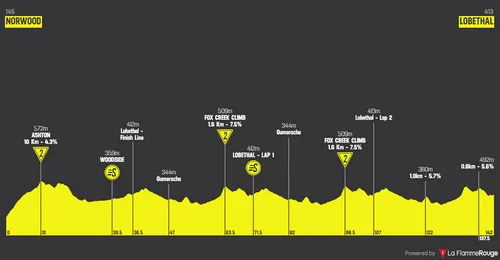
Stage 2: Norwood - Lobethal, 141.6 kilometers
Stage 2 into Lobethal is a relatively open day. Short on the bike and with another circuit, however the final three-lap circuit features some hilltops where attacks can come. Here the racing will be open, the GC can be played for, but a sprint is also possible. It is a day with a 10-kilometer climb right from the start, although not many are likely to risk it all at this point in the race. However it's an interesting and explosive start for a 141-kilometer day.
Then we have a three-lap circuit around Lobethal, not too different than the previous day. three small ascents to note. 1Km at 5.7% with 20 kilometers to go, 1.6Km at 7.5% with 8.5 kilometers to go, and 600 meters at 5.6% with only 4.5 kilometers to go. Then, a small descent and a slight drag to the line.
All in all, a very open finale. It could well finish in a reduced bunch sprint, however the small climbs offer plenty opportunities for puncheurs, rouleurs and classics specialists to launch attacks. In a race that is often decided by just a few seconds, it can be a key day and specially because it will be the first real climbing test and riders will be unaware of who has the best legs.
Read also
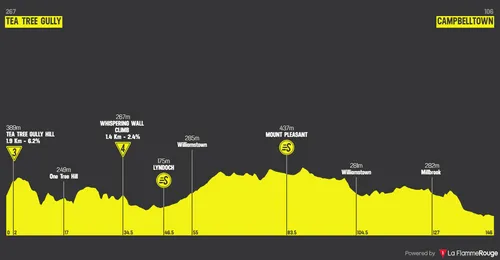
Stage 3: Tea Tree Gully - Campbelltown, 145.3 kilometers
Stage 3 starts uphill however it should be a relatively easy day to control. The race rides into Campbelltown but will not tackle the Corkscrew climb. Instead, a flat day where a bunch sprint will be hard to prevent. However, with such a tricky start and mostly downhill finale, a breakaway could certainly take advantage.
Again, it is a day that immediately starts with a climb. The first 35 kilometers of the 145-kilometer day are very explosive, they feature several climbs. If there are enough riders willing to take the risks, this could lead to a very interesting day. The day is quite rolling, and then the final 25 kilometers have a downhill trend. Speeds will be very high and it is difficult to cut much of a gap in such terrain.
However, a bunch sprint remains the most likely scenario. Campbelltown, in the outskirts of the Adelaide city center, hosts a finale that has a technical approach, but a pan-flat finale.
Read also
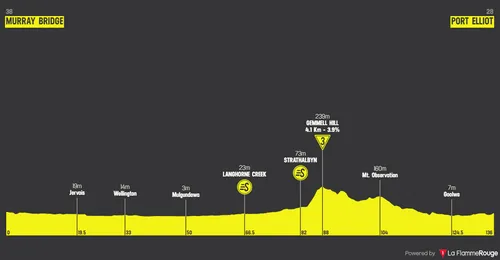
Stage 4: Murray Bridge - Port Elliot, 136.2 kilometers
Stage 4 to Port Elliot will also be short and just as suited to the sprinters. There will be very little obstacles to tackle en route to the finish line. A day that can be exposed to the wind as it takes place quite close to the coast and does not feature this time around the rolling terrain of the previous days.
Instead, the first half is pan-flat. We've got Gemmel Hill that summits with 48 kilometers to go however it doesn't pose much of a challenge, and the final third of the day isn't much of an issue profile wise. In the final few hundred meters there will be a fast approach to Port Eliott, a sharp final corner with just a few hundred meters to go means a race up to that point, and then an all-out sprint in the day that suits the fast men the best.
Read also
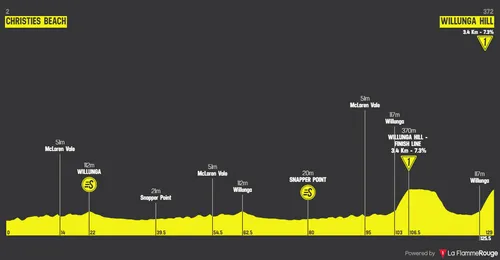
Stage 5: Christies Beach - Willunga Hill, 129.3 kilometers
Stage 5 sees the return of the Willunga Hill. It's the traditional Tour Down Under finale, and a stage that can be decisive. This is the comeback of the race's (and region's) most famous climb. It is a day that is very short and should be very calm all throughout, with the exception of the end. Like Milano-Sanremo, it is a slow buildup towards what should be a very explosive finale.
The riders will climb twice the 3-kilometer ascent at 7.5%, the first of which summits with 22.5 kilometers to go. However here there's rarely action, just positioning towards the base but then the race calms down. It's a non-technical and consistent climb so the riders will likely remain in a calm zone. Then in the run-up to the final climb the fight is serious.
Then, it's a 10-minute effort approximately - including the run-up to the ascent. High speed and big chainring, it's a climb where attacks have to be very powerful to make the difference as it will be raced at high speed. Still, the few seconds, and bonifications at the finish line, often prove vital for the decision of the ochre jersey.
Read also
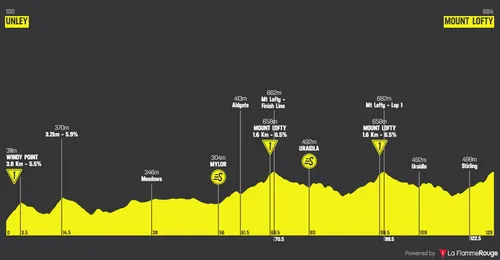
Stage 6: Unley - Mount Lofty, 128.2 kilometers
The race ultimately ends in Mount Lofty. After it's success of 2023 the race organizers decided to repeat the formula. On the menu is an interesting finale, with an explosive start to the stage and then a three-lap circuit which ends atop the ascent each time. It's one with slight gradients, but the hilltop finish provides opportunities for attacks and for the ochre jersey to change hands right in the race's end.
Two 3-kilometer climbs provide space for attacks early in the day. A rolling day in the hills, it's not too difficult to image a big breakaway trying to establish itself and threatening the overall classification. A three-lap circuit around Mount Lofty will take place. In total, it's around 14 kilometers of false-flat climbing with a couple of small downhill sections. However as we've been able to observe last year, everything is in preparation for the final 1.6 kilometers.
The gradients here average 6.5%, but at the base of it the grades do go higher. A finale for puncheurs and climbers simultaneously, it's an explosive one. Not a climb to make big differences, but every second matters in such a race.
Read also
claps 42visitors 3
Just in
Popular news
Latest comments
- You need to get out moreJezla18-02-2026
- Ego and self regard are at the center of most human folly.TheOlderIGetTheFasterIWas18-02-2026
- You can't win 'em all. These early season races at this level are good because it shows where you are weak and need work.awp18-02-2026
- This is what I wrote 12-02-2026 10:00: "As far as I'm convinced, Remco still has "zero" wins. I invite Remco to stop in Siena to meet his Slovenian master, Pogi the G.O.A.T... but no, it's better to run away and hide. His fans will somehow defend and glorify him. Let me repeat, he still has zero wins in 2026. If someone doesn't have a high enough IQ to understand what I'm talking about, it's because they don't recognize the low ranking F category races. If Remco will beat Del Toro and Adam Yates in the UAE Tour, then I will consider this to be his first win in 2026. Ad acta." PS: Remco still has zero wins. His second and third class races don't count. The first real race comes along and Mustafa Remco fails.Mou-Cro-HR18-02-2026
- This is what I wrote 12-02-2026 10:00: "As far as I'm convinced, Remco still has "zero" wins. I invite Remco to stop in Siena to meet his Slovenian master, Pogi the G.O.A.T... but no, it's better to run away and hide. His fans will somehow defend and glorify him. Let me repeat, he still has zero wins in 2026. If someone doesn't have a high enough IQ to understand what I'm talking about, it's because they don't recognize the low ranking F category races. If Remco will beat Del Toro and Adam Yates in the UAE Tour, then I will consider this to be his first win in 2026. Ad acta." PS: Remco still has zero wins. His second and third class races don't count. The first real race comes along and Mustafa fails.Mou-Cro-HR18-02-2026
- OK, let's stop with the BS. Remco Mustafa didn't have any cramps, 100%. The only truth is, Remco is not the great cyclist that the Belgians and his fans want us to think. Ad acta!!!... Once in the fall of 2025 I said that Remco's chances of following Pogi are equal to my chances, there is no difference. The only difference is that I'm in front of a TV and Mustafa is acting and making excuses live in front of an audience of millions. Ayuso and Remco are the biggest liars in the peleton.Mou-Cro-HR18-02-2026
- I just hope that he just says that he got cramps and that's it, rather than some long-winded excuse which makes him seem even more of a piece of...
 Rafionain-Glas18-02-2026
Rafionain-Glas18-02-2026 - finally, a team that does something smart. I could never understand why Ineos would like Egan train as he did alone. put a motorbike behind him with an earpiece to call out issues above. same with remco crashing into a postal truck.mij18-02-2026
- Wow, that is not a good sign for Remco. Great win for Tiberi!Pedalmasher18-02-2026
- Great champion Remco but his profile is more suitable for Ardennes-like races and tour with no very hard climbs. Not only Tadej and Vingegaard, there are a lot of younger cyclists (del Toro, Ayuso, maybe Seixas, Nordhagen and others) that will soon be big GC boys.
 maria2024202418-02-2026
maria2024202418-02-2026
Loading
Our festival programming is here! 🎉 Get amongst Adelaide’s buzzing atmosphere, take in the City of Adelaide Tour Village, experience the race from the regions or give the kids a day they won’t forget 🙌 Explore our full program ⬇️ #TourDownUnder tourdownunder.com.au/festival?utm_c…
Write a comment
